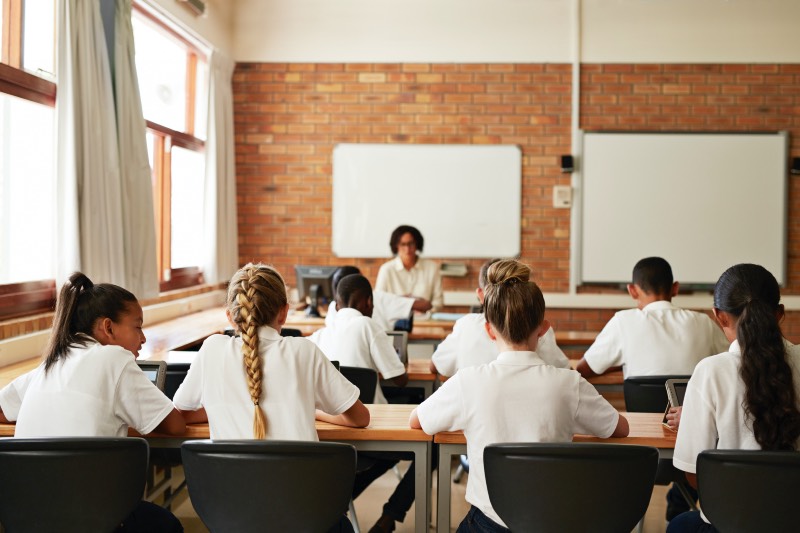As I write this, the sad story of Brittany Higgins, and her alleged rape by a co-worker in our Parliament House in 2019, dominates the news, pushing even COVID and our national stoush with Facebook from the front page. Her story raises serious issues, both around sexual violence against women and workplace culture. Despite our awareness of the issues, the frequency with which the treatment of women in our workplaces comes to light is worrying.

The confrontational culture of Parliament, where so often it is about ‘playing the person’ rather than debating policies, and where so many are separated from family for prolonged times, and under considerable pressure, is a particular concern in Canberra. It is fair to say that there are other issues which need to be addressed if lasting improvements are to be made not simply in Canberra but across society.
The link between excessive alcohol consumption and celebration is an important one, especially where consent is involved. The importance of adequate reporting processes in workplaces is also highlighted as evidenced in the failing of the system in Brittany’s case.
Another strand in the story emerged in Sydney after a petition started by former Kambala College student Chanel Contos disclosed hundreds of former Sydney schoolgirls’ allegations of rape or sexual assault at the hands of their male peers. Though much of the initial coverage centred on Sydney private schools, the fact that so many young women signed the petition is distressing. It would be irrational to think that there would not be similar cases in schools throughout Australia.
The whole area of consent, especially as a time in life when both boys and girls are first exploring their relationships and sexuality, with so many mixed signals from society as to what is appropriate, and where too often alcohol is involved, can have devastating impacts on girls, and on boys also. We need to encourage parents to have these conversations with their children, and earlier, around Years 8 and 9, rather than later. And I suspect we need to encourage boys to talk more with sisters, girlfriends, friends who are girls and good mates about consent.
In schools, we need to reflect on how we inform and educate around consent. The question needs to be put clearly to our young people as to whether sex can ever be consensual where heavy drinking or drug taking is involved, or for that matter, at a young age where pressure in any form is applied. There needs to be more conversation between young men and women around these varying forms of pressure, spoken and unspoken, and the signals that are communicated. In what may be an uncertain, exciting and confusing time in a young person’s life, values of respect and empathy, along with clear understandings of the law, need to be inculcated. Young people need to have the simple and overriding realization and acceptance that ‘no means no’, whenever and always.
'Education, in our tradition, is about formation of the person, of the mind, the heart and spirit.'
More broadly, we need to communicate effectively the conviction that sex is not just a physical act, and that there is no such thing as purely casual sex. Sexual activity impacts on the way relations between the genders are played out, and on the timing of personal growth and development, and it can have profound impact on wellbeing.
The choices around sexual activity go to the heart of the genuine freedom of the individual amidst the confused expectations around sexual morality. It is a challenging time to be a young man, and it can seem as if all blame in the area of relations between men and women is being put on them. Our very models of healthy masculinity are in contested space, challenged as they are by an array of contrary examples. We are uncertain too, as to the impact of pornography and the way it depicts sexual activity, especially given how easily it can be accessed through technology. It is fair to observe, as a Year Twelve boy from Xavier College recently noted, that 'we live in an age of popular culture that can tend to trivialise and condone casual and inappropriate behaviour'. And we should acknowledge that the patterns of behaviour acquired in our youth can shape long-term attitudes that flow later into relationships, family life and the workforce.
The Church’s emphasis on sex as essentially relational in nature, and that there is a moral dimension to the choices we make in such an important expression of our human nature, bears attention. Sometimes the focus falls so heavily on rules that are seen as restrictive or constrictive of behaviour, rather than seeing them as protective and respectful in their intent. The message of self-discipline and purity in the way we approach this most potent and creative part of our nature is not about inducing guilt but is about respecting what is so powerful within us. More importantly though, perhaps the most significant message we can convey from our faith tradition, one that underpins all notions of respect and consent, is that love is ultimately central to sexual activity, and that love of its very nature seek to put the other, and their needs and choices, first.
The debate, at least in Sydney, also illustrates the weight of expectations that can fall on schools in addressing societal challenges. Sex education in schools has always had challenges, given the diversity of cultural, religious and family situations, not to mention varying levels of maturity among students. And certainly too, education in the biology of sex, fails to meet the challenges faced by the young person navigating the critical area of relationships.
px.jpg)
Education, in our tradition, is about formation of the person, of the mind, the heart and spirit. One of the challenges facing schools today is the sheer range of expectations placed on them — educating the young while preparing them for the workforce, conferring life-skills while also teaching students to think, transmitting cultural identity while tending to students’ individual needs. There is the need to provide a safe and nurturing environment, as well as one that is competitive and successful, so that we can form strong yet gentle, centred but generous young people, ready for the world around them.
Jesuit education speaks of the formation of the whole person; And thus we speak of formation and nurturing of body and mind, of the imagination, human creativity, enquiry and play, nourishing the spirit and the relationships that are the very fabric of life. Our nature as sexual beings is integral to this.
I can claim no specific expertise in addressing how we deal with the issues facing teenagers emerging as young adults and the critical issue of consent where sexual activity is concerned. I do believe that the spiritual life of the school plays a part in ensuring the wellbeing and healthy sense of self in students. Liturgies and retreats can provide opportunities for conversation, reflection and encouragement in this critical area of wellbeing.
In the context of Xavier College, our expression of our faith can strongly reinforce our sense of community and the values that shape and express our identity. They can challenge attitudes that demean or exploit others, including around sexuality and gender.
Cultivating a spirituality that underpins a healthy regard and respect for others and placing the needs of others first can go a significant way to reinforcing clear messages around the rights of others, including the right of a young woman to simply say ‘no’ without fear or judgment.
 Fr Chris Middleton SJ is the rector of Xavier College in Melbourne.
Fr Chris Middleton SJ is the rector of Xavier College in Melbourne.
Main image: Students in classroom (Getty)